
Maria Elisa Cristobal Anson-Rodrigo, better known as Boots Anson-Roa, is a Filipina actress, columnist, editor, and lecturer.

Pilar Garrido Corrales is a Filipino pop singer, songwriter, actress, comedian and television presenter. She is best-known for her distinctive backbend when singing and is popularly referred to as the "Asia's Queen of Songs" for her vocal style and longevity.
Carmencita Abad, known as Carmencita Decano Abad in real life, is a Filipina actress. She made her film debut with Tres Muskiteros was a younger sister of another PreWar actress Corazon Noble.

LVN Pictures, Inc. was a Filipino film studio that was considered one of the biggest in the history of Philippine cinema and its foremost establishment in motion picture post-production until 2005. In its heyday of motion picture production, LVN Pictures has been compared to that of the Metro-Goldwyn-Mayer Studios (MGM) of Hollywood because it had, under contract, the biggest stars and film craftsmen of the period. Before its closure in 2005, LVN Pictures was known as one of the oldest living film studios in the country.
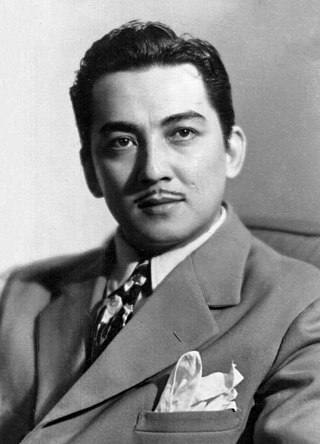
Regidor Lim de la Rosa, professionally known as Rogelio de la Rosa, was a Filipino actor and politician. He was one of the most popular Filipino matinee idols of the 20th century. He is also remembered for his statesmanship, and in particular, for his accomplishments as a diplomat. Elected to the Philippine Senate from 1957 to 1963, he was the first Filipino film actor to parlay his fame into a substantial political career, paving the way for other future Filipino entertainers-turned-politicians such as Senators Ramon Revilla Sr., Tito Sotto, Ramon "Bong" Revilla Jr., Jinggoy Estrada, Lito Lapid, Freddie Webb, Robin Padilla, and President Joseph Estrada.
Rosa Aguirre (1908–1981) was a Filipina actress who worked for Sampaguita Pictures and LVN Pictures. She was married to actor Miguel Anzures and was mother to actor Narding Anzures, who became infamous for killing his onscreen partner Lilian Velez in 1948.
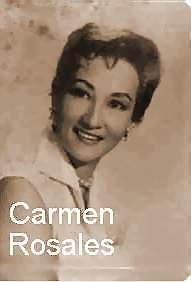
Januaria Constantino Keller, better known by her stage name Carmen Rosales and by her nickname Mameng, was a noted Filipina actress and World War II guerilla fighter. Her acting career spanned the decades immediately before, during, and after World War II. Her tremendous commercial success and wide fan base before the war led to her being considered the original superstar of Philippine movies. Her stage name, Carmen Rosales, was taken from her hometown of Rosales in the province of Pangasinan.

Rose Stagner, better known by her screen name Rosa del Rosario, was a Filipino-American actress. Regarded as one of the most prominent figures during the Golden Age of Philippine Cinema, she has appeared in 60 photoplays and was the first Filipino actress to appear in multiple Hollywood films Border Bandits (1946) and Anna and the King of Siam (1946). She was the first actress to play the Filipino comic-book superhero Darna on screen in 1951. She was honored with a special Ani Award and was inducted into the Eastwood City Walk of Fame for her significant contributions to Philippine film industry.
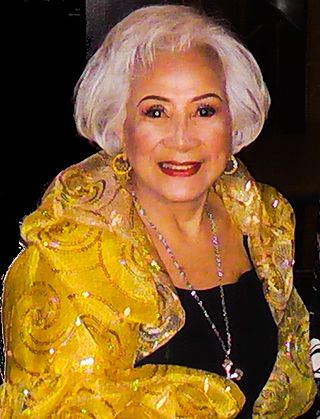
Clarita Villarba Rivera, better known by her screen name Mila del Sol, was a Filipina actress, entrepreneur and philanthropist. Born in Tondo, Manila, she gained fame in her very first lead role in the 1939 film Giliw Ko. She was discovered by LVN Pictures President Doña Sisang de Leon, who insisted in casting her over the objections of the film's director, who felt she was too young for the part. It was the film's director, Carlos Vander Tolosa, who gave her the screen name Mila del Sol for "causing the sun (sol) to appear as if by miracle (milagro) over his otherwise overcast set whenever she was called in to do her scenes."

The Philippine Red Cross is a non-profit humanitarian organization and a member of the International Red Cross and Red Crescent Movement.

Ramon Bautista Revilla Sr., popularly known simply as Ramon Revilla Sr. or Don Ramon Revilla, was a Filipino actor who served as Senator of the Republic of the Philippines.
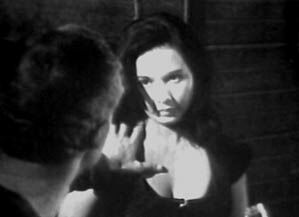
Rosario Violeta Hernández Solís, professionally known as Charito Solís, was a Filipino film actress.
Toni Rose Danon Gayda is a Filipina television personality and actress. She is the daughter of the former Philippine National Red Cross governor, public servant and movie star Rosa Rosal, and American pilot Walter Gayda. She is of Filipino, Egyptian, French and Polish-American descent.

Victoria Lorna Perez Aluquin-Fernandez, better known by her stage name Lorna Tolentino, sometimes known as L.T., an abbreviation of her screen name, is a Filipino actress, model, film producer and television personality. Dubbed as the "Prime Star", she is known for her dramatic roles in film and television and was the fourth actress to achieve the Grandslam status for her performance in the film Narito ang Puso Ko (1992). With a career spanning five decades, she has already appeared in 100 motion pictures and is cited by critics as one of the greatest Filipino actresses in Philippine cinema. She has received numerous accolades including seven FAMAS Awards, four Luna Awards, a Gawad Urian Award and two commendations from Asian Television Award.
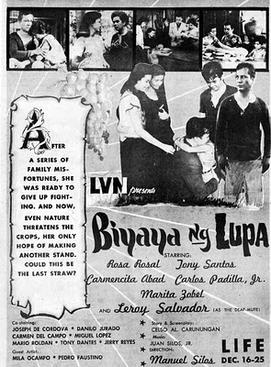
Blessings of the Land is a 1959 Filipino drama film directed by Manuel Silos. It was entered into the 10th Berlin International Film Festival. The film won Best Picture and Best Story from the Filipino Academy of Movie Arts and Sciences. In 1960, it was shown at the Asian Film Festival held in Tokyo. The story was written by Celso Al. Carunungan, while the screenplay was written by Carunungan together with Pablo Naval. The movie was produced by LVN Pictures.
The Young Critics Circle - Film Desk is a society of film critics and an award-giving body for cinema in the Philippines. It was established in 1990 and had its first awarding in 1991.
Elizabeth Oropesa, also known as La Oropesa, or "Boots" to friends is a Filipina actress. She was a Grand Slam Best Actress winner for Bulaklak Ng Maynila (1999). She was crowned as Miss Luzon of the Miss Republic of the Philippines (RP) 1972. She was one of the Miss White Castle models in the mid-70s. One of her notable roles is Sandra Salgado, the evil stepmother and the main villain in hit soap opera Esperanza. Aside from showbiz assignments and commitments, Oropesa is currently working as a healer.
Jennifer Sevilla-Go is a Filipino actress in movies and television shows. She was a former member of That's Entertainment.
Sakada(The Tenants, also Seasonal Sugarcane Workers) is a 1976 Philippine social-realist film about the ordeals of sugarcane farmers on the island of Negros in the Philippines. It is "a thinly-veiled criticism of the country's feudal power structure." The film was directed by Behn Cervantes and written by Oscar Miranda (story) and Lualhati Bautista (screenplay). Music was done by Lucio San Pedro. It starred Alicia Alonzo, Robert Arevalo, Hilda Koronel, Pancho Magalona, Bembol Roco, Gloria Romero, Rosa Rosal, and Tony Santos Sr.

Malvarosa is a 1958 Filipino family melodrama film directed by Dr. Gregorio Fernandez from a screenplay by Consuelo P. Osorio, based on a comic serial of the same name written by Clodualdo del Mundo Sr. The film tells the story of a poverty-stricken nuclear family living on the nearby railroad tracks whose members carry their burdens that need to be resolved. It stars Charito Solis, Vic Silayan, Carlos Padilla Jr., Vic Diaz, Rey Ruiz, and Eddie Rodriguez as the children of Rebecca del Rio's character, Sinforosa, and Leroy Salvador as Candido, Rosa's fiancé.













